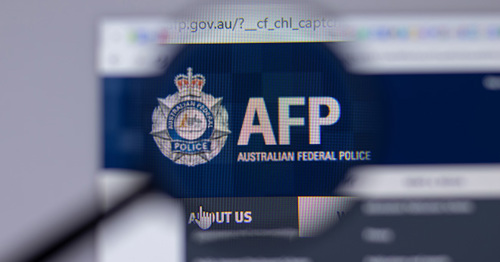Human trafficking – know the signs and how to report it
3 June 2024
Knowing how to identify the signs of potential human trafficking can help protect your workers and the community from ongoing significant harm.
Human trafficking comes in many forms, but every form violates human rights and involves the exploitation of victims.
Victims of human trafficking have been moved from their locations, sometimes internationally, and often for the purpose of providing cheap or free labour.
The risk of human trafficking can be higher in industries that have traditionally high numbers of migrant workers, including many labour hire industries.
The Labour Hire Authority (LHA) undertakes investigations to identify non-compliance that results in worker exploitation, and works with other Government agencies where appropriate.
Where potential signs of human trafficking are identified during an investigation, LHA may work with federal authorities like the Australian Federal Police (AFP) to enable ongoing support of victims, and to provide information that may facilitate future legal action.
During a recent investigation of a provider in the horticulture industry, LHA compliance officers identified accommodation and work conditions that indicated potential human trafficking.
With the consent of the workers, their information and other evidence collected were immediately referred to the AFP for further investigation. LHA worked with the AFP and the workers involved to ensure ongoing support and prevent further exploitation.
Providing support to victims is integral to ensuring a safe transition once the trafficking has ended – victims may have been living in enforced accommodation, have little social awareness or access to finances.
How to identify potential human trafficking
It is important to know how to recognise the signs of human trafficking and how to report it, so that immediate support can be provided to the victims.
The control that abusers have over victims of human trafficking can take many forms and is sometimes difficult to identify. Ongoing exploitation could include forced labour, debt bondage or indentured servitude.
The United Nations Office on Drugs and Crime has developed a list of indicators to help people identify suspected human trafficking. A range of these indicators are outlined below – you can view the full list on the AFP website.
Signs that could indicate that someone at work may be a victim of human trafficking or modern slavery include when they receive inadequate compensation, are mistreated or are forced into certain conditions at work.
Inadequate compensation may include when workers:
- have to pay for tools, food or accommodation, or have these costs deducted from their wages
- have their travel costs paid by facilitators, who they must pay back by working or providing services
- receive little or no payment for employment, have no access to or control over their earnings, or have little to no understanding of work rights and entitlements
- are charged excessively for accommodation or living expenses.
Mistreatment may include when workers:
- are provided poor quality, multi-occupancy accommodation
- are provided limited or substandard food
- are disciplined through punishment
- work excessively long hours over long periods, or don’t have any days off or adequate breaks.
Being forced into certain conditions may include when workers:
- are unable to negotiate their working conditions, or receive threats against joining a union
- have no choice of accommodation and/or are transported between accommodation and work by organisers
- are required to live in groups in the same place where they work and leave those premises infrequently, if at all
- are deceived about the nature of their job, location, migration status or employer, or believe they must work against their will.
There are also signs in someone’s personal life that may indicate they are a victim of trafficking. The person may:
- show fear, anxiety, distress or nervousness, or have noticeably low self-esteem or appearance
- show signs their movements are being controlled, including losing control of their passport, travel or identity documents, or being threatened with deportation
- have limited or no social interaction, not speak English, be unfamiliar with the local environment or have poor social awareness
- be unable to communicate freely with others, or respond as though coached by a third party
- be under psychological or physical control, or under surveillance of another person.
Who to contact for help
If you see signs that indicate someone may be a victim or at risk of human trafficking, it’s crucial to reach out to authorities for help as soon as possible.
If the victim is a labour hire worker, contact LHA through the Report a Problem form or by calling 1300 545 200. LHA may investigate the labour hire provider and work with other Government agencies to facilitate support for the worker.
You can also contact the Australian Federal Police (AFP) directly on 131 237 (131AFP) or go to the AFP website for help.
The AFP can keep victims safe, provide advice and refer victims to other services for support, such as accommodation, financial support, counselling and legal and immigration advice.
Non-English speakers can access an interpreter by calling the Translating and Interpreting Service on 131 450 to help them to communicate with LHA and other services. All calls are free and confidential.
